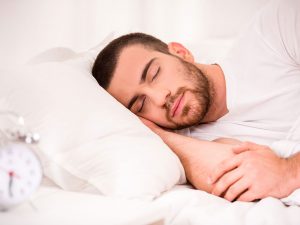Last but not least in our A-Z series of blog posts, guest contributor Professor Alice Gregory [co-head of the Goldsmiths Sleep Lab] writes about the importance of sleep.
Putting sleep difficulties as the very last blog of this excellent series chimes well with its history in psychiatry. We’ve known for years that poor sleep co-occurs with a variety of different psychiatric disorders, such as major depressive disorder and certain anxiety disorders. Regardless, sleep in psychiatry has not been given the attention that it deserves.
“sleep in psychiatry has not been given the attention that it deserves”
For a long time, disturbed sleep in psychiatry was thought of as a lesser problem, a symptom of other disorders, and not as a disorder in its own right that needed attention and treatment.
Similarly, although sleeplessness in children is an important issue for a whole family, it is so common that parents have perhaps felt they should ‘put up or shut up’ rather than exploring help that might be available by tapping into valuable healthcare resources. There has been a lack of awareness that sleep problems in children are associated with a range of other difficulties in both children and their parents.
We are now clear that problematic sleep deserves attention. We know that rather than being a ‘secondary complaint’, sleep problems can predict and exacerbate other difficulties. We know that sleep provides an opportunity for the brain and body to restore themselves, and for toxins to be cleaned from the brain. Sleep is also important for learning and memory and for emotional regulation – so sleeplessness in our youth should not be ignored.
“We know that rather than being a ‘secondary complaint’, sleep problems can predict and exacerbate other difficulties.”
Three cheers then for the new zeitgeist of embracing our slumber. Celebrities such as Ariana Huffington have got on board and have promoted the importance of sleep – reaching global audiences of millions. Scientists too have tried to help – with new articles and popular science books coming out all the time. Online resources are also being developed – with websites available for those suffering from sleeplessness (e.g. SLEEPIO) or dealing with a child’s (e.g. BABYSLEEP).

We have at last woken up to the importance of sleep, but there is more to do. Recent research has supported the idea that addressing sleep problems can have positive implications for numerous other psychiatric disorders and we need to understand how significant this could be. To what extent is dealing with our sleep a panacea? There are also ongoing attempts to try to understand more about why there are individual differences in responses to treatments – some people will do better than others, following treatment for sleep difficulties. Will this knowledge help us improve treatments for all?
“We have at last woken up to the importance of sleep, but there is more to do.”
We’ve come a long way – and our sleep is no longer at Z on the list of considerations when it comes to our mental health. As a field and a diverse community of experts and advocates, we look forward to the day it is at A.

